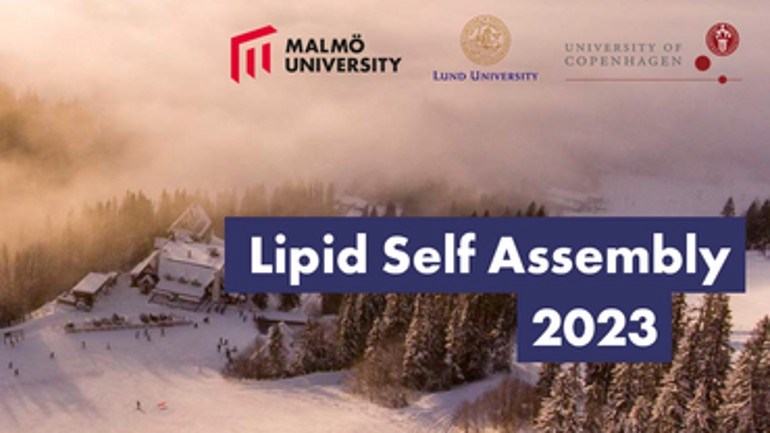Organisers of self-assembly of lipids ‘retreat and meet’ event looking forward to seeing you

Self-assembly of lipids served a vital role in the delivery of the Covid mRNA vaccines, but what next for this highly versatile material? Malmö University is co-hosting a conference which will bring together some of the leading international figures in this field of research.
Billed as a ‘retreat and meet’, it is anticipated that up to 80 academics and industry representatives will attend the event, sponsored by the Camurus Lipid Research Foundation (CLRF), in the northern Swedish town of Åre.
Johan Engblom, a professor at Malmö University’s Biofilms Research Center for Biointerfaces, stressed the importance of the future potential of research into self-assembly of lipids in areas such as diagnostics, drug delivery, and food technology and nutritional delivery.
The gathering, which aims to encourage international collaboration between academic institutions, is also being organised by the University of Copenhagen and Lund University.
Professor Ben Boyd, based at the University of Copenhagen, said: “Lipids are a material which are highly versatile, and the process of lipid self-assembly is what enabled the Covid mRNA vaccines. The purpose of the meeting is to bring together a range of people who carry out research in lipid self-assembly or have new ideas to talk about what is next on this front: how can we harness lipid self-assembly to achieve further goals across a range of technological fields?”
Since the 1980s, when there was an exchange of ideas between colloidal scientists in Australia and lipid self-assembly scientists in the Malmö/Lund region, there has been a steady exchange of research and ideas and it is hoped that this meeting will both build on that network and extend it further afield.
It takes place on March 26-29 and among the guests are leading academics including Calum Drummond from RMIT University in Australia, Annela Seddon from Nottingham University, Raffaele Mezzenga from ETH Zurich and Maria Valldeperas Badell from Camurus AB, a lipid-based drug delivery company.
Valldeperas Badell comments: “Collaboration between academia and industry promotes research and innovation. By bringing new ideas into business or solving industrial problems at a fundamental level, both sectors can benefit mutually.”
Drummond adds: “This is a very important area to advance the scientific understanding by bringing international research leaders together. Lipid self-assembly is critical to life processes as all biological cells have a lipid membrane encasing the interior elements critical to cell life functions. Important nanomedicine applications also rely on lipid self-assembly such as the lipid nanocarriers of mRNA used in the Moderna and Pfizer/BioNTech Covid-19 vaccinations.”
Engblom concludes: “While some focus will be on discussing latest developments in cubic phases, we are not limited by that and hope that we attract others working in, for example, lipid nanoparticles and lipid assembly in biology.
“Honouring the long tradition of lipid research in Scandinavia, we are very happy to invite you for a meeting in the spirit of Professor Kåre Larsson, who also co-founded CLRF, in the small mountain resort of Åre, only a short drive west of his birthplace, Örnsköldsvik.”